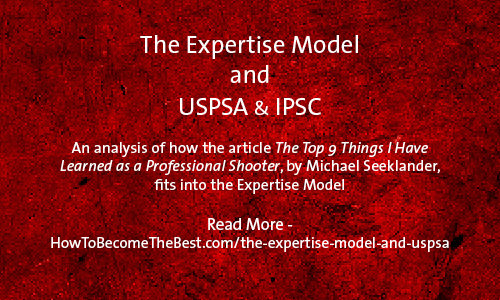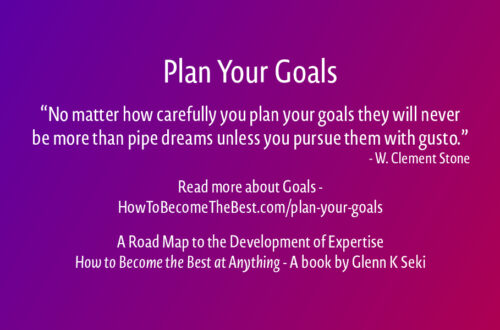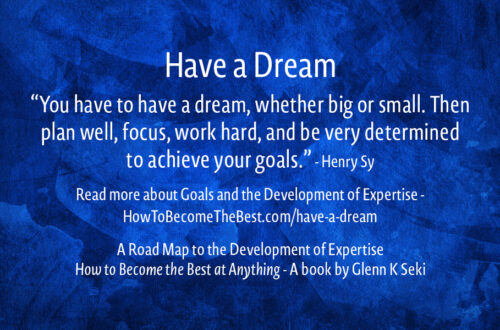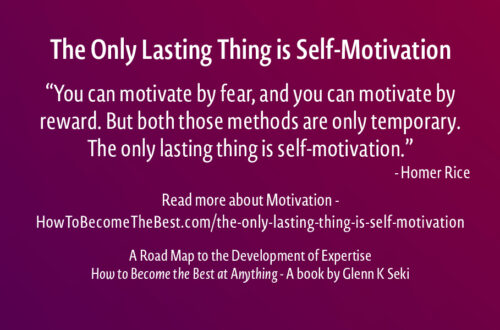Below is an analysis of how the article The Top 9 Things I Have Learned as a Professional Shooter, by Michael Seeklander, fits into the Expertise Model set forth in my book How to Become the Best at Anything.
To better understand the Expertise Model read the bog post HowToBecomeTheBest.com/the-expertise-model or better, the book.
Michael Seeklander wrote an excellent article. Please read the entire article.
Michael puts an emphasis on deliberate practice and learning in his article. Deliberate practice will lead to the automation of actions, automaticity. You don’t want to have to consciously think about something when you are operating at high speeds. Deliberate practice will help you develop this automaticity.
He also points out that you need to focus on a specific goal and he suggests a plan to achieve this goal.
Michael discusses access to equipment and big matches, it is also implied that you already have access to practice facilities.
He ends the article with persistence. Persistence is probably the hardest to achieve, to keep going and to never give up, in practice and in matches.
And now to the article and how it illustrates the Expertise Model as outlined in my book.
1. In Michael’s introduction his first line is “If everything is a priority, then nothing is.” “So the question is, do you want to be average or even good at three or four things, or great at one.”
In other words, set a specific goal and have a plan.
2. “It’s about the shooting.” “If you want to be good at shooting, work on shooting.”
Deliberate practice, lots of deliberate practice and learning.
3. “Do the work.” “Putting in the work means sacrificing to be the best you can be.”
Again, deliberate practice and learning, and persistence along with sticking to your plan.
4. “You can’t simulate the match environment in training.” “Instead, make your practices so ridiculously hard that a match should feel easy. And attend big matches as part of your preparation.”
More about deliberate practice and learning, and access to big matches.
5. “There is no such thing as good enough (gear).” “The point is that you should constantly be exploring and learning more about how the gun and gear you compete with works, striving to understand it better and tweak it until it is the very best you can make it.”
Access to equipment and learning.
6. “Pressure will always exist.” “Rob Leatham once said ‘I never learned to relax when nervous. I just learned how to shoot when nervous.’”
Deliberate practice and learning, and automaticity.
7. “Having fun is not the goal.” “Performing well is… Figure out how to improve your results and put the work in.”
Deliberate practice and learning.
8. “Things happen slower behind the gun.” “The conscious mind can not process as fast as the subconscious can do. [sic] Trust that if you have done the work the shooting will be slower when you are the one shooting.”
Deliberate practice and learning, and automaticity.
9. “Never, ever give up! I have watched top-level shooters win national championships AFTER zeroing a stage.”
The big one, persistence, never give up.





